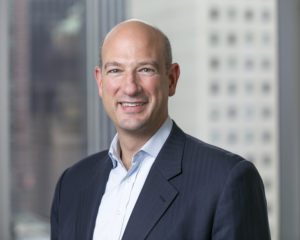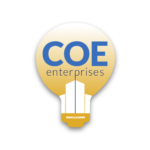

Bio
Todd S. Rich is the Co-Founder and Partner of Declaration Partners and the Head of Real Estate, serving as chairman of Declaration’s Real Estate Investment Committee. Todd, who is based in the Bethesda, MD office, co-founded Declaration with two decades of multi-market real estate investing and operating experience including acquisitions, dispositions, development, leasing, and management of portfolios involving over $20 billion of institutional quality real estate. Previously, Todd was an Owner and Partner at The JBG Companies where he served as a member of its Investment and Management Committees. He was involved in strategic efforts culminating in the creation of JBG SMITH Properties as a public REIT (NYSE: JBGS). Prior to The JBG Companies, Todd was a Managing Director at Tishman Speyer where he was responsible for the business activities of the Washington, DC region and worked in Tishman Speyer’s Chicago, London, and New York offices.
Todd currently serves on the boards of the SED Center and the Jewish Community Foundation (JCF) of Greater Washington and formerly served on the board of the Economic Club of Washington. He graduated from Princeton University and was a Fulbright Scholar living in Argentina and Brazil. Outside of work, Todd enjoys reading and spending time with his wife and three children at the beach and on the slopes.
Show Notes
- Declaration Partners is a Registered Investment Advisor investing with a family office mindset and institutional capabilities (5:50)
- Founded to invest first David Rubenstein‘s personal capital from Declaration Capital, his family office (6:45)
- Focus on growth equity in private companies (7:45)
- Real estate investing (8:00)
Origins and Education
- Mother passed away recently. Felt loved by both parents. (8:30)
- Type of love was not atypical of growing up in Suburban New Jersey (9:10)
- Immigrant mentality of growing up in the United States (9:30)
- Take advantage of resources and both achieve more than parents and leave a legacy (9:50)
- Dad was son of immigrant who came from Poland during WW2 avoiding the Holocaust and started a textile company (10:15)
- Grew up in NJ and went to college and became an accountant (10:50)
- Todd felt that his impetus to start a company from his Dad’s and Grandfather’s influence (11:20)
- Mom was always interested in education and loved reading the newspaper who influenced him in current events (11:40)
- Take family to every museum (12:30)
- East Brunswick HS (13:15)
- Attended Princeton University– Met some of his closest friends there (13:20)
- Studied Economics with Finance and Latin American Studies (14:00)
- Awarded Fulbright Scholarship to go to Argentina and experienced a tumultuous time there with an unstable economy and political system while in private equity (14:15)
- Intrigued learning about other languages and thought that Argentina was recovering (15:20)
- Wall Street Banks were doing financial engineering and not really creating value, so thought that real estate investing and operations was a better career alternative (16:30)
First Job- Tishman Speyer
- The Rotation- Now called the Leadership Development Program (17:50)
- Grow junior staff into real estate professionals (19:00)
- Construction, Disposition, Leasing, Capital Management and Asset Management (19:45)
- New York, London, Chicago, Washington (20:30)
- Led the Washington DC Office for them
- Family Owned firm (21:15)
JBG Company
- Joined as a Partner (21:30)
- Contrast between Tishman Speyer and JBG was the product differentiation…Tishman Speyer was predominately office focused and JBG was more mixed use focused (22:30)
- Describes private equity and public company differences (24:15)
Declaration Partners
- He personally wanted to be in a private sector and wanted a more “family office” investment platform (25:20)
- Deploy capital selectively– different from institutions, families invest periodically when they have conviction, where institutions invest continuously (26:00)
- Invest flexibly– have the ability to be nimble with strategies in both where investment takes place (26:45)
- Own actively– important to work the asset on operations and consider compounding in investment properties (27:30)
- Together as partners with other families in investing and with operators (28:40)
- Think longer term with both assets and philosophy (30:15)
- Not wedded to indefinite hold (30:30)
- Fund structure is a closed end structure (31:30)
- All investors are family offices or individuals (31:50)
- In general is different than most other private equity funds (32:20)
- Fund is invested in 90% multifamily and industrial (33:00)
- Value investors- care about entry basis and good fundamentals (33:45)
- Care more about basis and returns than placemaking (34:40)
- Most of their investments in higher growth markets where demand exceeds supply at least for now (36:40)
- Focusing on investment structure (37:15)
- Buy buildings (37:30)
- Provide preferred equity- generates deferred capital gains rather than taking ordinary income that debt provides (37:40)
- Injecting “gap capital”
- Co-GP investing with high quality sponsors and bring in institutional LP equity and participate in promotes (39:20)
- Lower middle market size- $10-50MM equity checks (40:20)
- Programmatic relationships- weekly calls to discuss pipelines of transactions (42:00)
- Will pass occasionally on deals offered (42:30)
- When saying yes, they may do just GP capital or up to all the equity (42:45)
- “If you can’t beat them, promote off of them” (43:45)
- Character is the most important aspect of a partner (44:40)
- Value long term relationships (45:15)
- New party- “dating process” and alignment process (45:45)
- Case study of a NY company looking to buy an industrial building in the Inland Empire of California who needed a new partner after another partner dropped out and Declaration took over (46:15)
- Cited David Swenson, Yale’s Endowment Program quote: “The best legal documents cannot protect you from a bad partner, but the best partner can protect you from the worst legal documents” (48:30)
- Team has deep operating experience, yet chose not to operate properties without a partner (49:30)
- Partners run the day to day property issues, yet the firm takes assets from “cradle to grave” (51:00)
- Evolution from David’s capital and their own capital and then other partners were brought in on a deal by deal basis and then decided to form a fund and raised $240MM- no pressure to deploy capital (52:20)
- “Perfect Deal” description- mix of current cash flow and have likelihood of rental growth either in the market or with a capital investment (54:00)
- Bullseye is difficult to uncover (55:00)
- Need to find a couple, not a lot of deals (55:15)
- New developments in Opportunity Zones (55:45)
- Leverage is to be flexible depending on the situations in amount and term really depends on the situation (56:00)
- Flexibility in investment types (59:00)
- 1/3 JV, 1/3 Preferred Equity, 1/3 Co-GP (59:30)
- Opportunity Zone deals outside of the fund
Firm Structure
- Looking for integrity, talent, investment and asset management experience in hiring (1:01:00)
- Building the culture- small firm- twice a week meetings on Zoom for culture building not for investment decision making (1:01:45)
- Back in the office since early 2020. (1:02:50)
- ESG- Still looking at the principles behind it. Controversial on environmental issues (1:03:20)
- Updating properties to energy efficient methodology (1:04:00)
- Still thinking through the process (1:04:45)
- Stated goal of improving diversity (1:05:00)
Personal
- Family- His Mother’s passing has brought his family together even more than the past (1:05:40)
- Work- Loves his work and feels tremendous responsibility in managing others capital (1:06:20)
- Giving Back- Important to him…giving money and time. He realizes that he needs to give more time to the community (1:07:00)
- Wins- Standing on the floor of the NYSE when JBG Smith went public (1:09:10)
- Losses- Global Financial Crisis- Tishman Speyer invested with Bear Stearns and the properties were restructured and the process was difficult (1:09:30)
- Surprising- Sentiment that family investor philosophies are not investing in real estate. Why haven’t more private equity firms been doing it in real estate? (1:10:30)
- Advice to 25 yr. old self- Didn’t like Wall Street, and turned to real estate and loved it- follow your passion and start earlier. Bet on yourself! (1:13:30)
- Billboard- “Rule #1- Have Fun!” (1:14:45)
Postscript
- In tune with the Warren Buffett & Charlie Munger philosophy of patience and aiming at individual trend opportunities and “strike” deals
- Co-GP, Programmatic, LP, Opportunity Zone approaches
- Opportunistic in where he strikes
- Too much flexibility?
- Picky about what they are looking at
- Entrepreneurial culture in upbringing
- Fee related earnings became an important component to income projections and reporting
- Cites his experience at Carlyle about fee earnings
- Declaration does not need the same “fee related earnings”
- Private equity firms are “killing it” due to scale and smart investing
- Declaration doesn’t have the urgency to place capital…more of a patient approach
- Stellar reputation of Declaration would have appeal to sponsors
- Asset management experience is important in investing well
- Equity check size is a good place for flexibility
